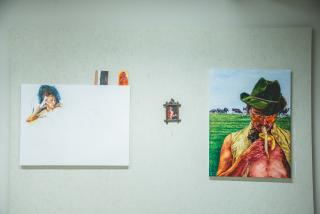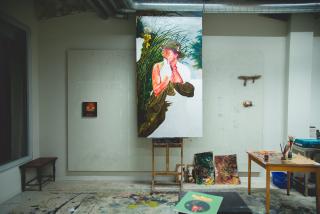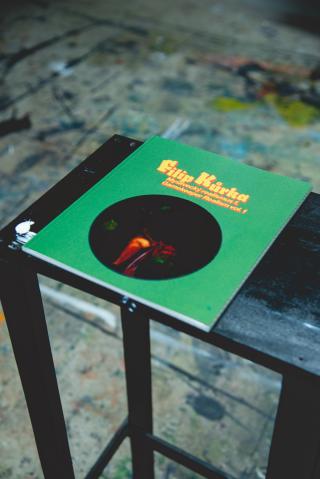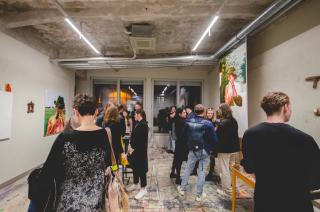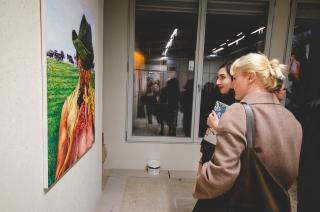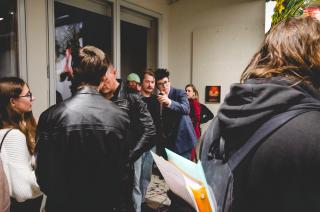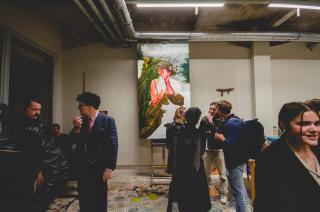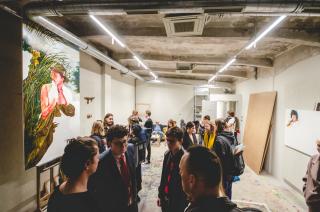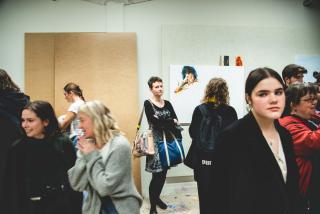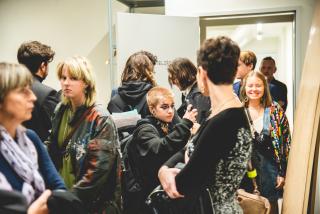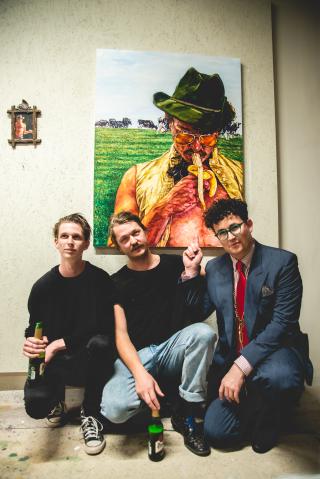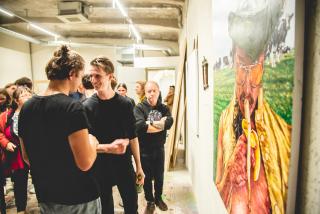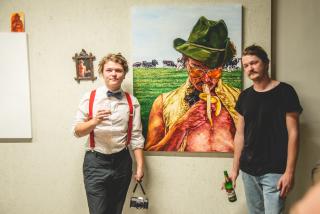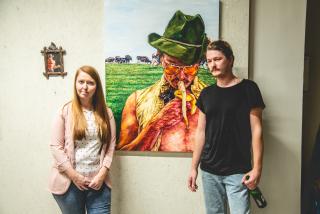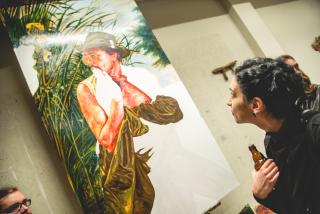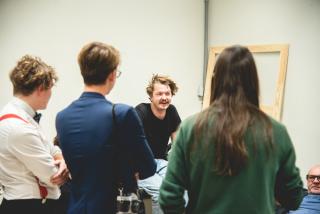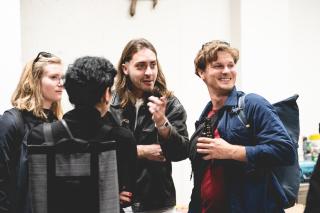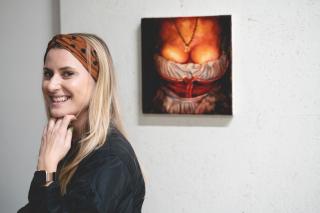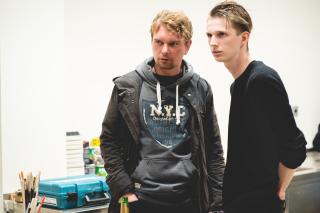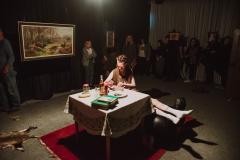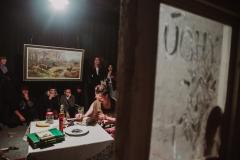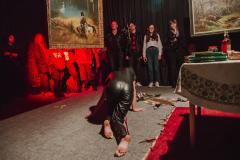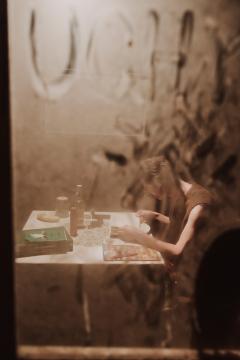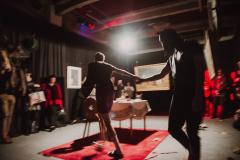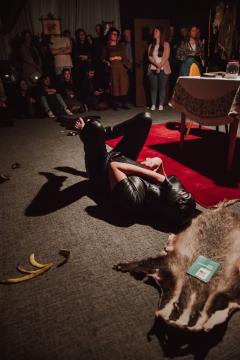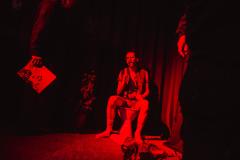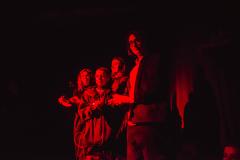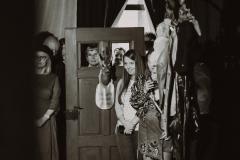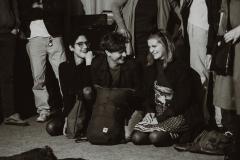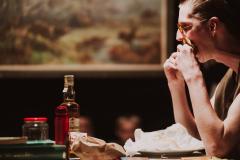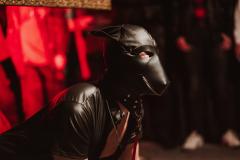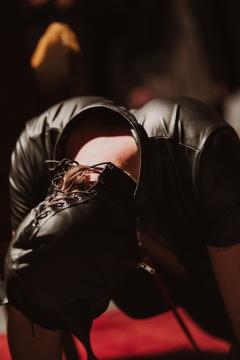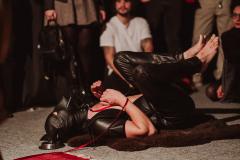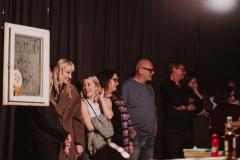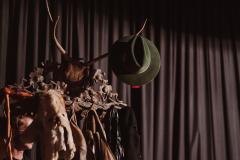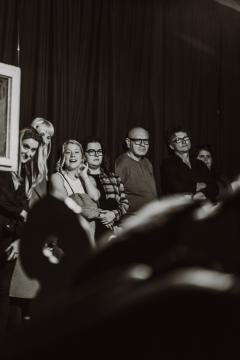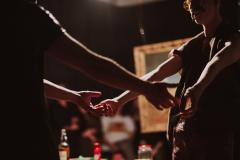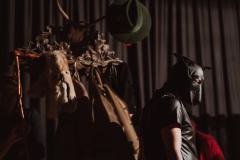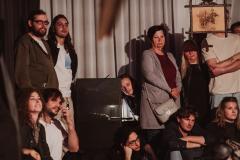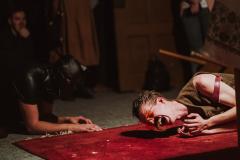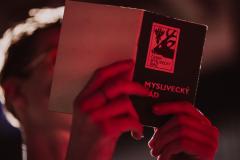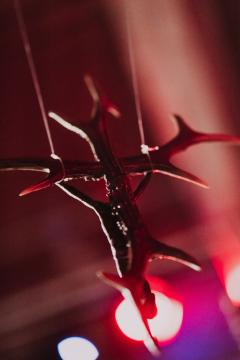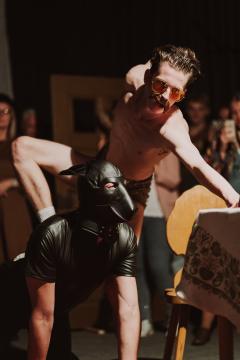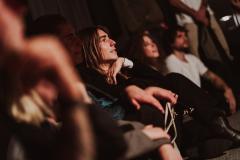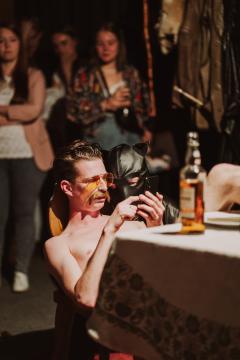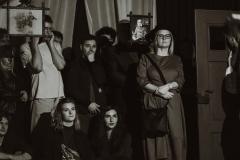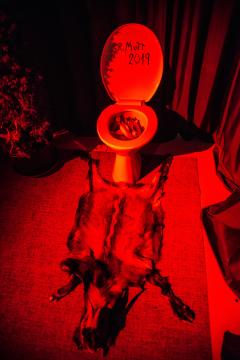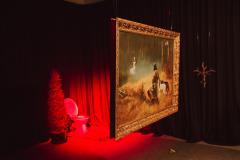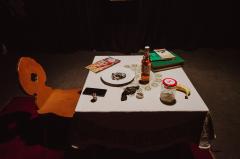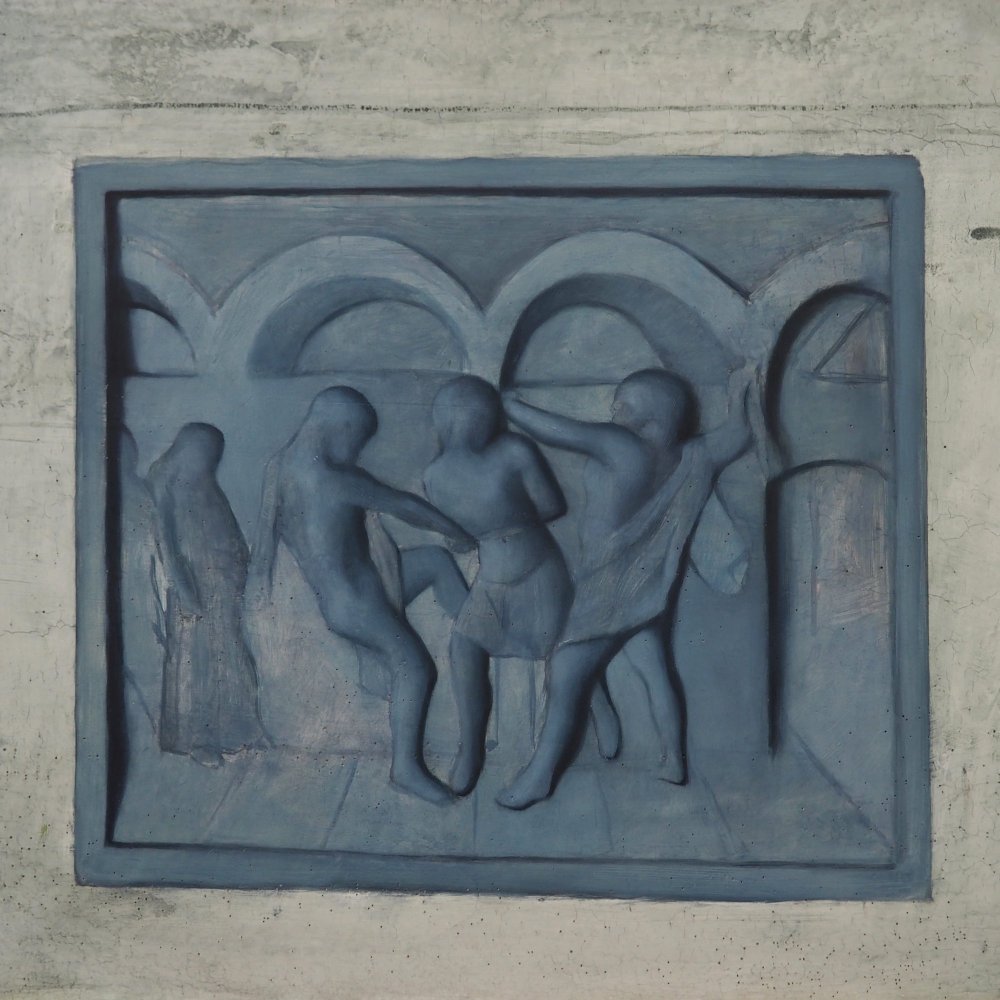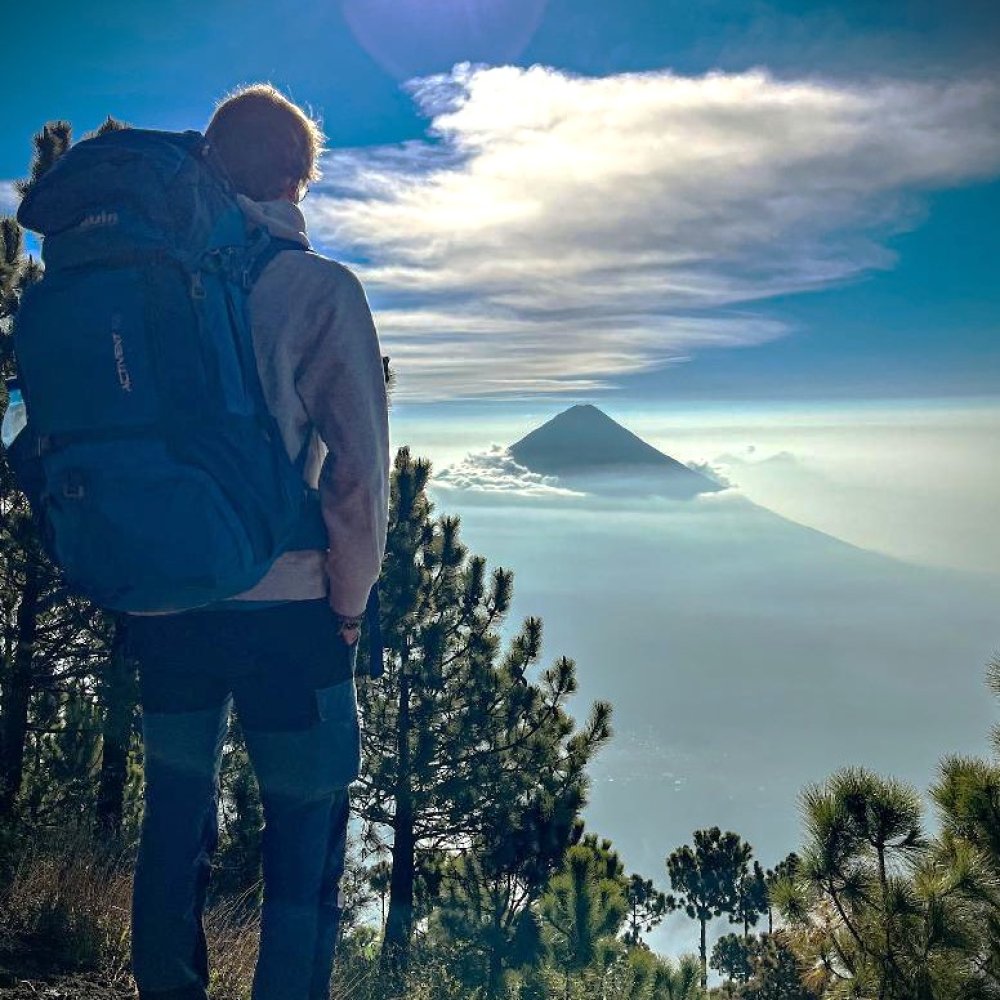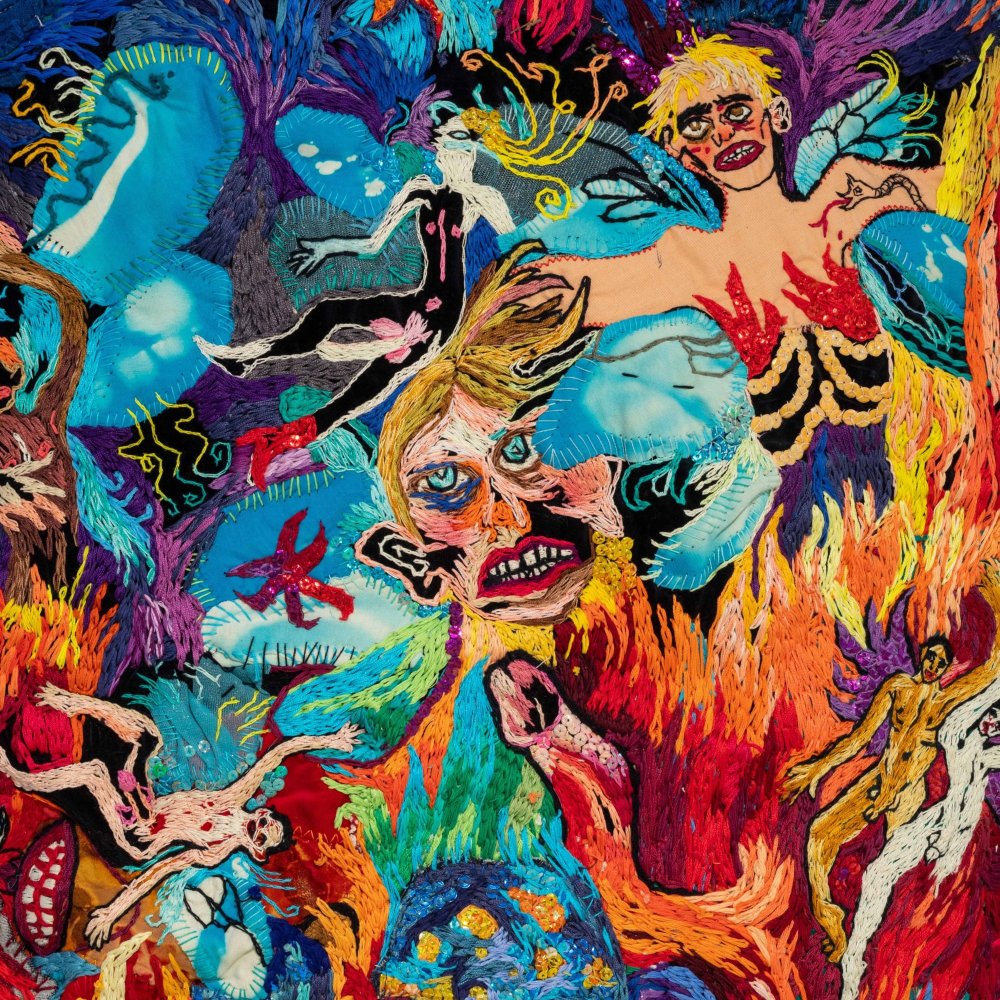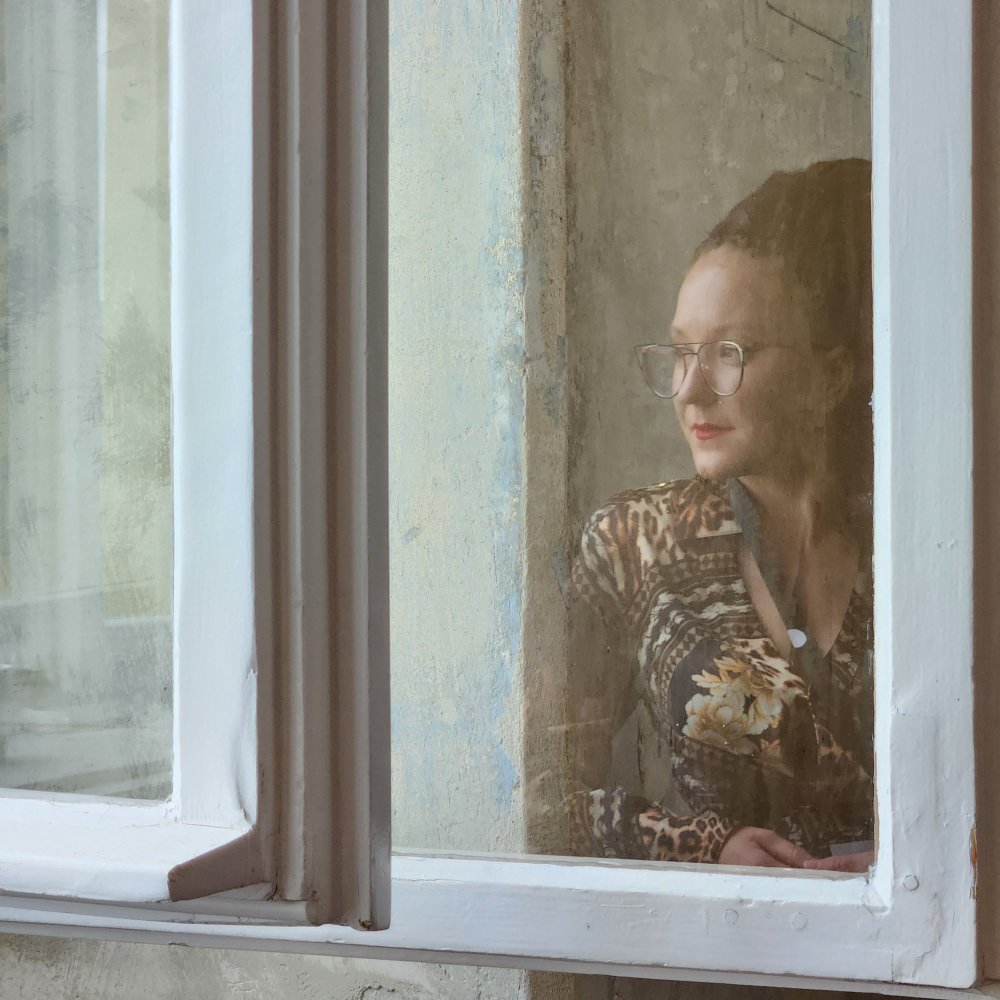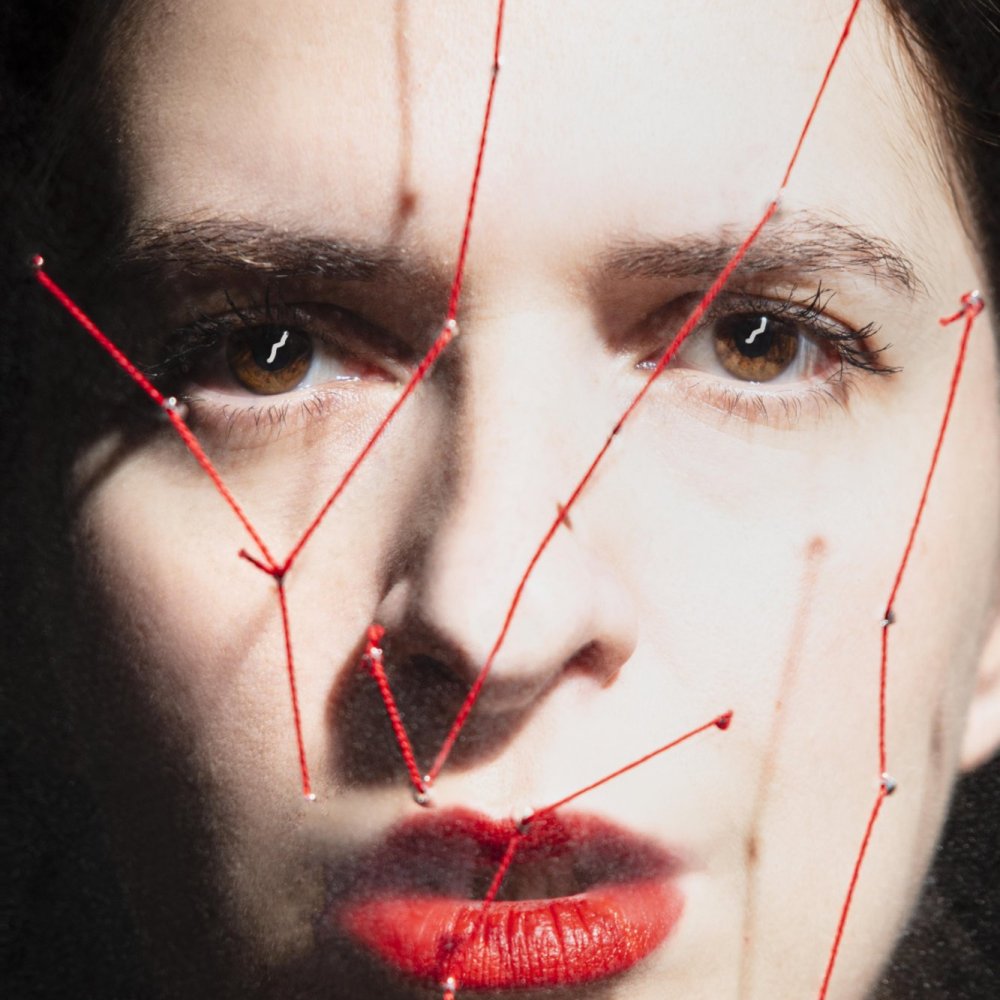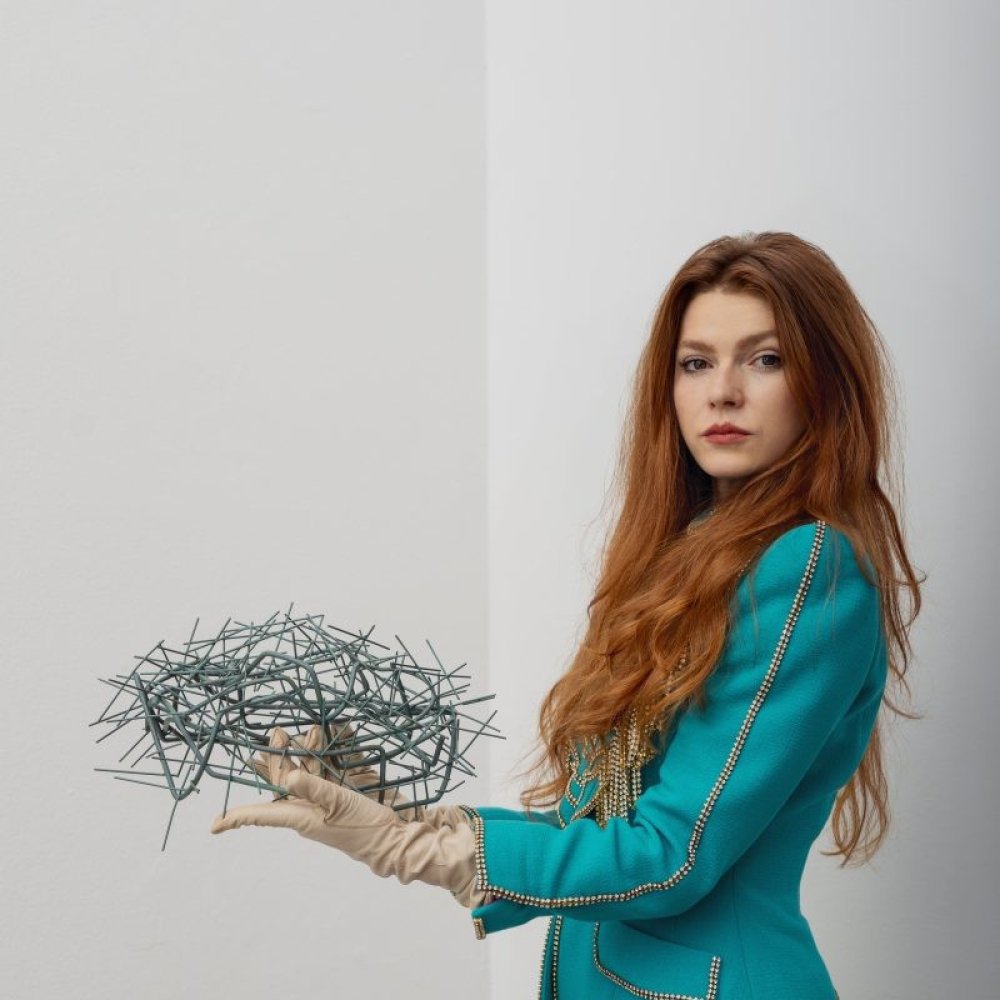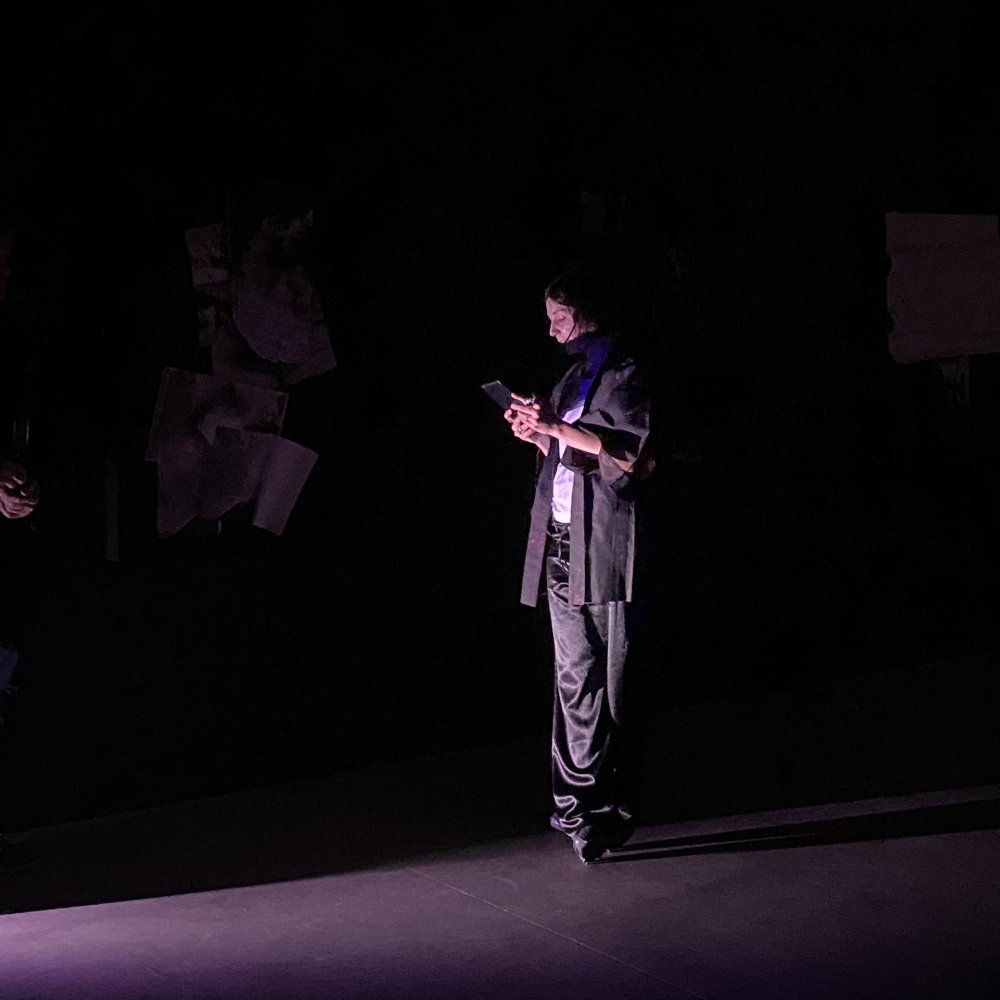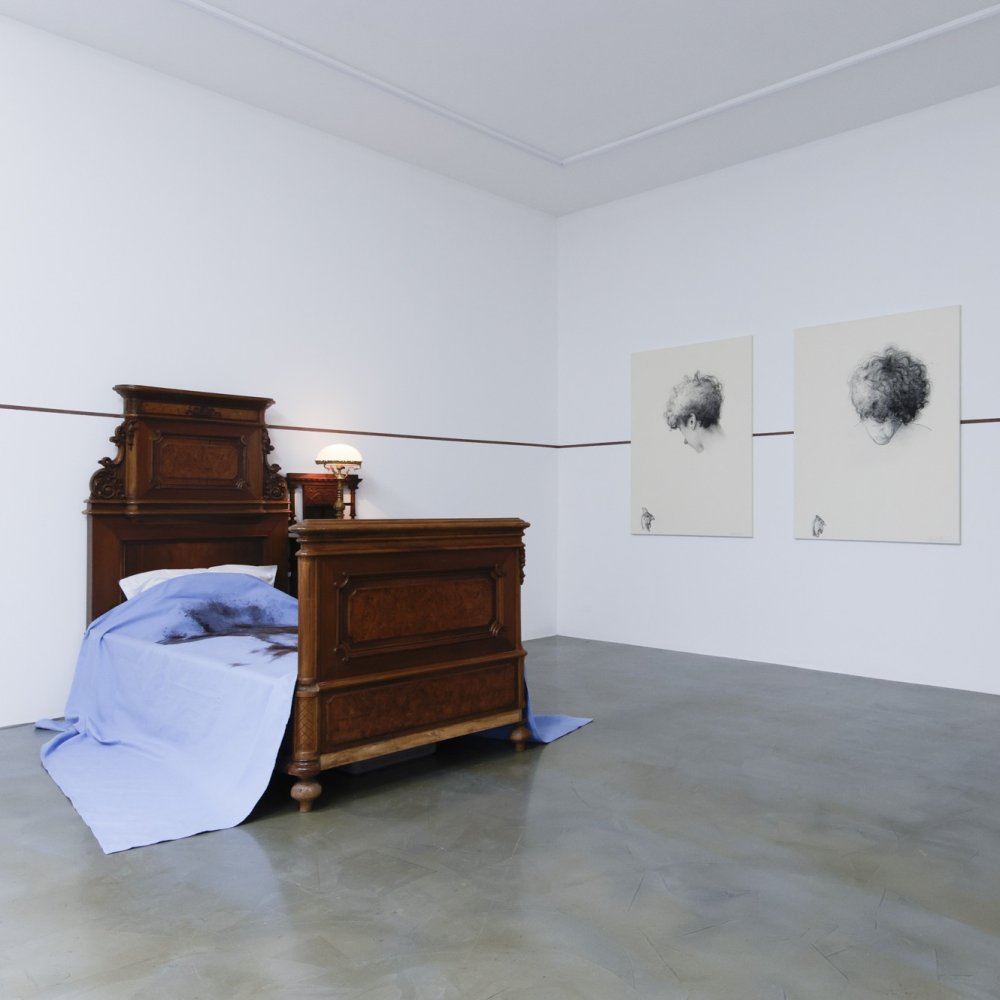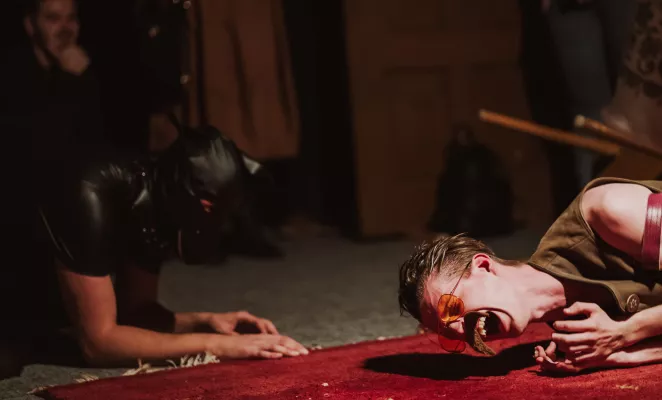
Filip Kůrka (*1993) is a graduate of the Academy of Fine Arts in Prague, where he studied in the studios of Martin Mainer and Jiří Petrboek and is known mainly for his depictions of pornographic themes. Recently, however, he has undergone what he calls a personal transformation, during which God gave him the idea of hunter realism. Thus, Kůrka became its founder and is currently working intensively on its realization. He has had numerous exhibitions in the Czech Republic and abroad, for example at the Gallery of Contemporary Art at the Prostějov Contemporary Art Festival or at The Chemistry Gallery in Prague.
What led you to focus your work on the subject of hunting?
I don't see it just as a theme, I see it more as a message - to preserve Czech hunting culture, to draw from it and give it a contemporary context so that it is acceptable and interesting for contemporary viewers. But of course I come from a background where I was very much influenced by cottage, cottage, hunting and folk aesthetics.
What artist inspired you most in the birth of hunting realism?
It was the painter and author of the manifesto of realism, Gustave Courbet. I'm drawing on his conception of reality, but there's also a beautiful connection with his late hunting work, which he did after he was exiled to Bavaria because of his political anti-Napoleonism. It was in Bavaria that he began to paint hunting and hunting themes, which I already see as hunting realism.
In addition to painting, he also realizes sculptural objects or video installations. How did you come to this kind of expression from classical painting?
Painting is still the most expressive medium for me, but at the same time it has become a kind of daily routine and certainty. I enjoy trying new mediums and dealing with the uncertainty and not knowing what a given thing will look like in the end. And it has often happened to me that an idea or a thought was not quite suitable for a two-dimensional representation, so I had to reach for another medium.
You're definitely not afraid to experiment and nothing is taboo for you. How do you perceive negative reactions? And what kind of positive feedback do you get?
For me, a negative reaction or outrage is actually a positive. When I get pissed off at something myself, it leaves a much bigger mark on me than when I simply like something and move on. Otherwise, with my work, people always comment positively on the technique and patience I put into the work, and in turn criticize the content and subject matter of the piece, so it's kind of a balance between positive and negative in the end, which feels right to me.
In August 2022, your works became so part of the Brutal Assault music festival in Josefov. What do hard music and your art have in common?
I'm not a completely loyal fan of metal music, in fact I love music, but through all genres. Anyway, without making a violent illustration of metal music, my paintings fit metal music a lot. I judge that they are united by drama and similar themes such as death, fighting, dream world, antiquity and a general interest in old art. My friends who are in the metal scene and I were aware of this similarity, so we tried to exhibit my works at the Brutal Assault festival and it was a success in the end.
One of your outputs after two months in residency at Telegraph Gallery was a performance called Solitaire in addition to presenting newly created works in the studio. If I'm not mistaken, this was the first time you decided to pursue such an artistic format. How did this work take shape?
I don't think if it wasn't for the residency at the Telegraph, I would never have gotten around to any of this kind of thing. In my studio in Prague, I was forced to paint most of the time because of my portfolio, that's the certainty that ultimately feeds me. The residency gave me a certain freedom to forget about that for a while and try something new as well. I started to visit the Ponorka every day, which is a pub near the museum in Olomouc that spoke to me in a very atmospheric way, and I started to write a script for a performance and come up with a set design completely spontaneously. I didn't believe it at first, but day by day it all started to take shape and I decided that this would be my main output from this residency.
Why did you choose Vojtěch Hrabák for the role of the hunter and how did you feel about playing the dog?
Vojta is a good friend of mine, but at the same time, in my opinion, a very good actor, and he's just right for the role. I knew from the beginning that it had to be him. But maybe it's also because we're attracted to weird and bizarre things like that. I felt great in the role of the dog, it suited me to have a mask that gave me the feeling of performing in anonymity for this first experience. Before the performance I consulted with Vojta about how to act and Vojta showed me how to get into an acting trance, suppress my ego and accept my role, which was a completely new and indescribable experience for me.
I suppose it wasn't the last time you did something like that.
However, we will repeat this same performance for Prague audiences most likely in December at Theatre X10, but we also plan to start collaborating with Vojta more intensively and doing more projects like this. We are also in contact with the chief curator of the Telegraph Gallery, Mira Macík, who has expressed interest in continuing similar events at the Telegraph.
What project are you currently working on and where will it be possible to see your work in the near future?
I am currently finishing the paintings I did here at the residency, which interact with the Solitaire performance. I am currently planning a group exhibition of hunter realism that will focus on the possibilities and practices of creating this genre. Due to the complexity of the project, I do not know when and where the exhibition will take place, nothing is to be rushed.
By Pavlína Jindrová / Inka Ličková
